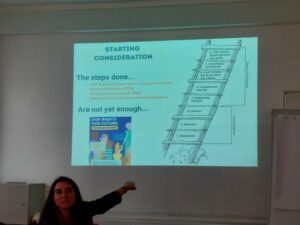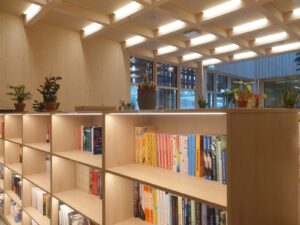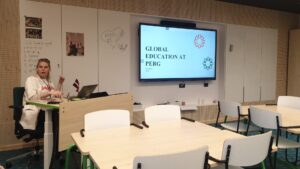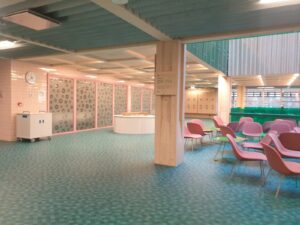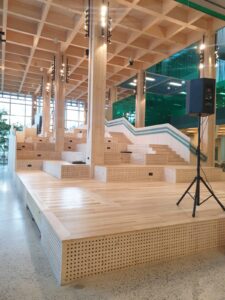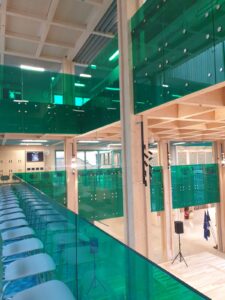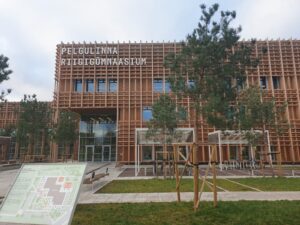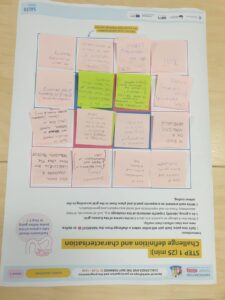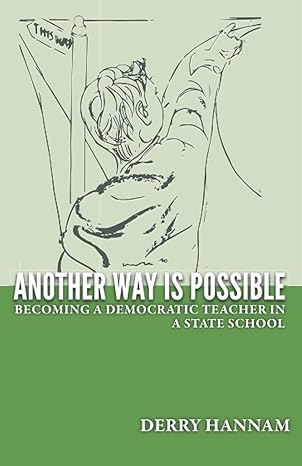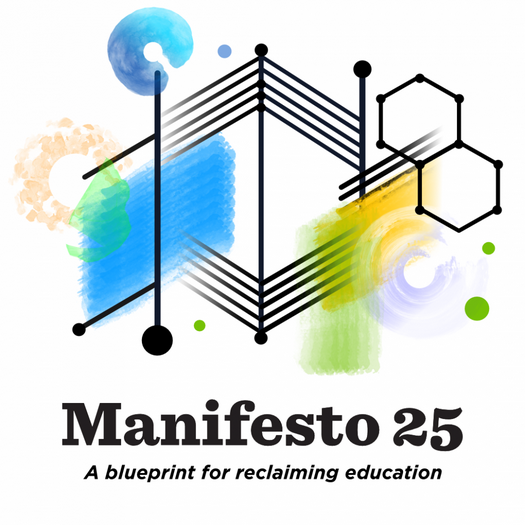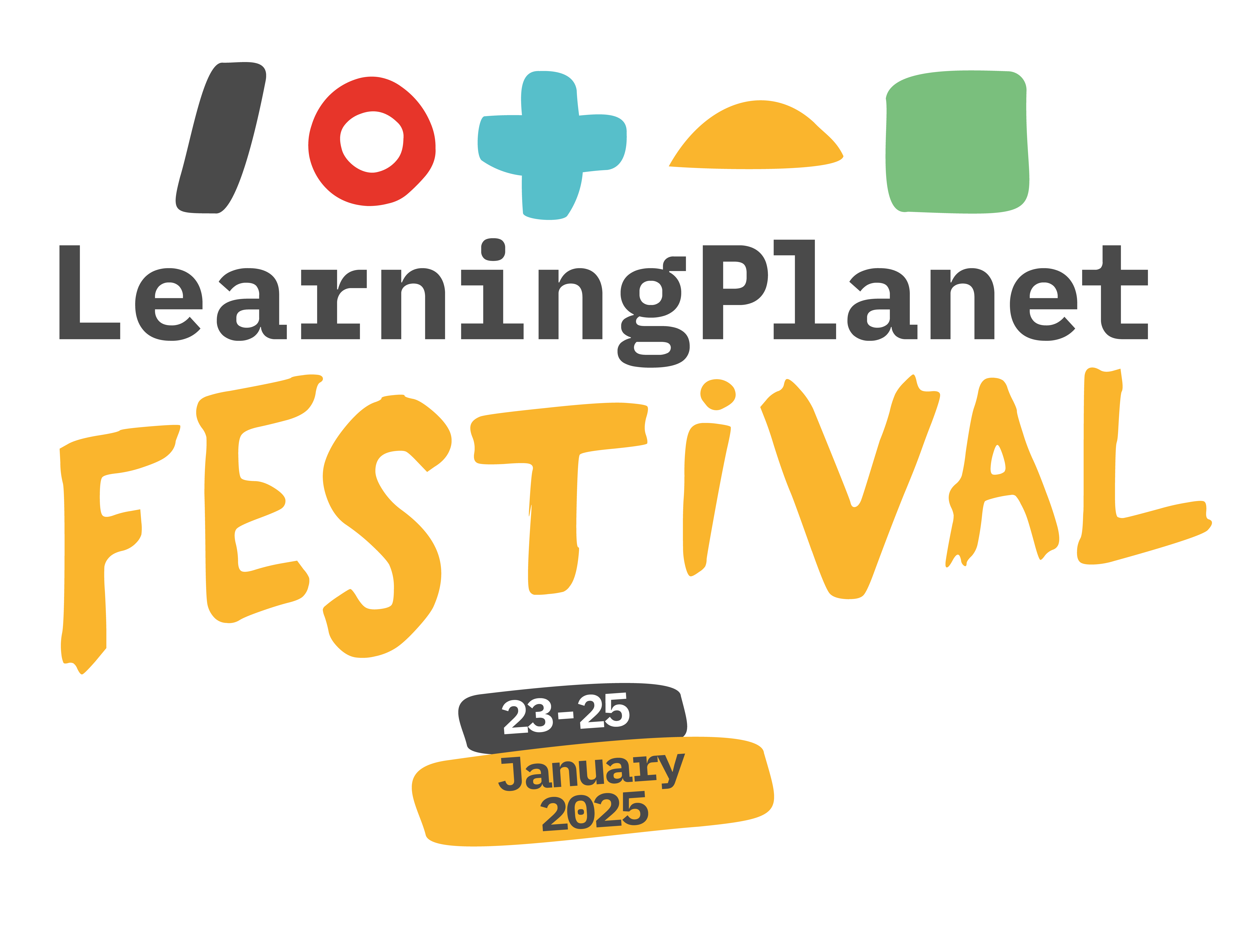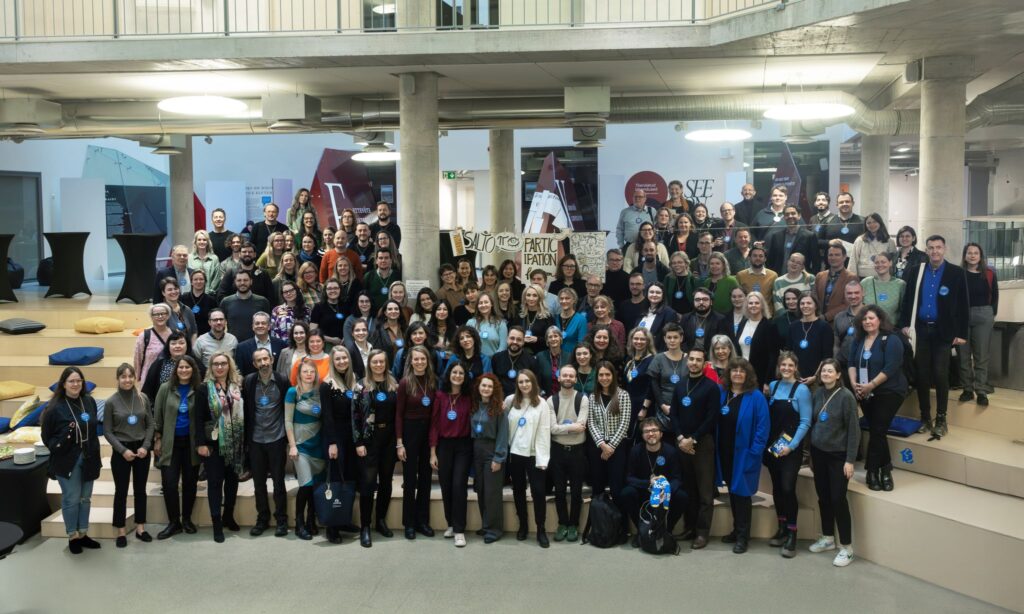
On 27–28 November 2024, around 150 stakeholders from the Youth, Education, and Training sectors across 26 EU countries gathered in Tallinn, Estonia for the Participation Forum, organized by SALTO Participation & Information.
Martina Paone was representing EUDEC and had 3 days full on interesting and inspiring meetings, workshops and networking.
EUDEC`s Counsil Member and co-founder and director at QUEST Martina Paone represented EUDEC in a talk about moving from teaching to practicing democracy in schools.
After the speech, exchanges with representatives from Erasmus+ national agencies, the European Commissions and other umbrella networks evolved around the possibilities and limits to promote more democratic education in schools.
Martina attended parallel sessions discussing how to improve participation and democracy into Eramsus+ and ESC projects, in the view of providing recommendations for the next programming.
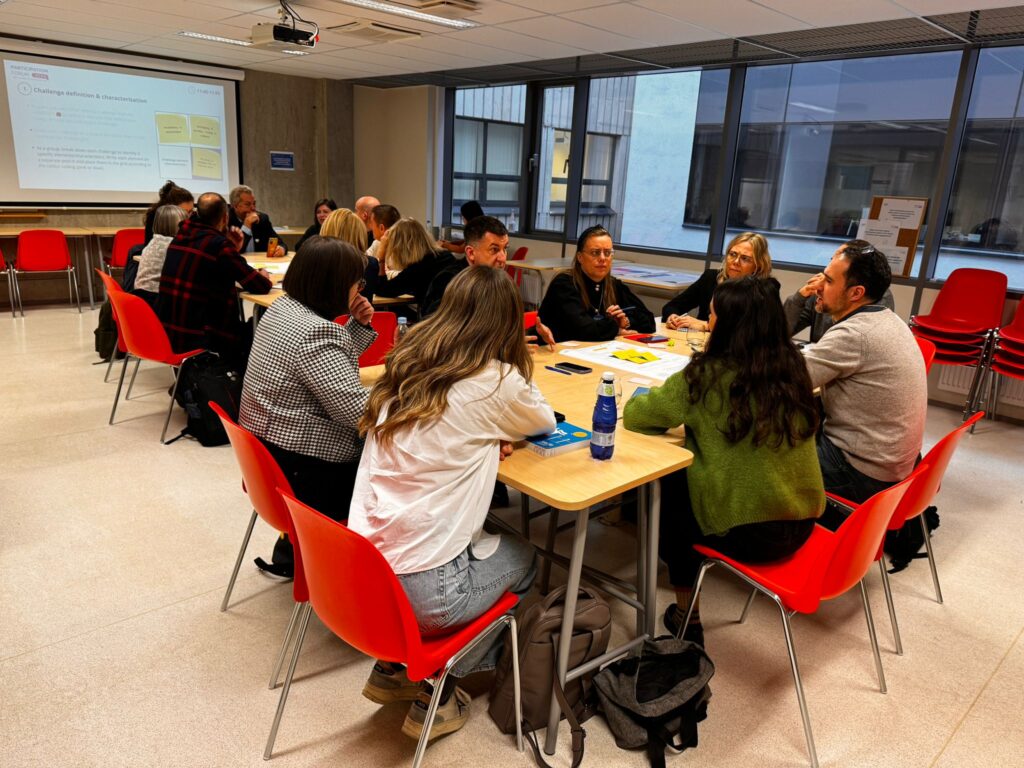
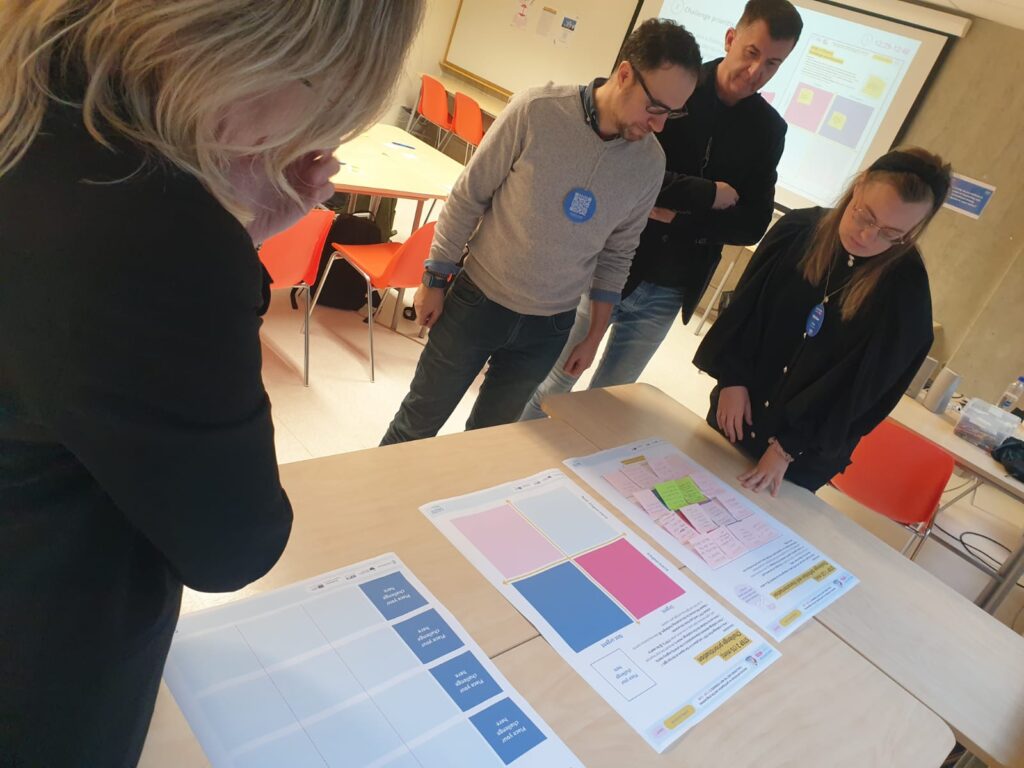
In the working group about school education, a serious challenge was found in the rigidity of school curriculum and in the lack of trust on students agency.
Among other suggestions, recommendations were brought about how Erasmus+ could incentivate policy work on flexible curriculum, and how teachers, school directors and educational decision makers should be accompanied through trainings on children agency, in order to promote trust in children voices.
During those three days, there was also a visit to Tallinn’s newest school, Pelgulinna Riigigümnaasium (Pelgulinna State High School). The school, which opened in 2023, is one of the largest wooden construction buildings in Estonia. In addition to receiving multiple awards for its innovative architecture, it also embraces a new approach to students and learning.
This new state school hosting more than 1000 students is rooted on the core values of “We have influence“ and “together and flexibly“ and “we truly believe in living and breathing democracy in our school.”
The visit showed a school that is trying to compromise state curriculum requirements (75% of the courses) with courses rooted in the gymnasium specific approach (on democracy, civic education and climate education).
One day a week, Thursday, it is dedicate to students freely elected modules. This day students can decide what to learn among 37 modules options as well as proposing new topics of study.
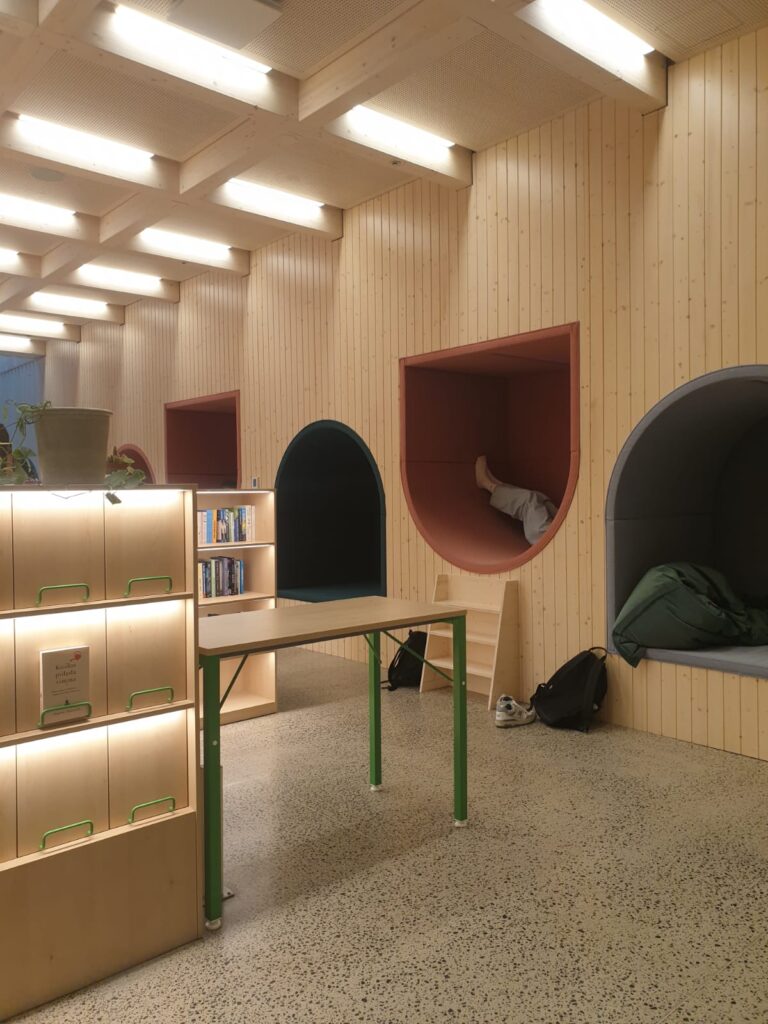
It is truly inspiring to see how democratic education principles are becoming increasingly integrated into everyday school life.
The growing interest in democratic education is evident in the choices students and parents make when selecting schools, as well as in the initiatives and strategies adopted by educational organizations to foster inclusive and participatory learning environments.
